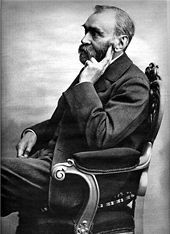Cross posted from The Stars Hollow Gazette
Whose sarin?
by Seymour Hersh, London Review of Book
Barack Obama did not tell the whole story this autumn when he tried to make the case that Bashar al-Assad was responsible for the chemical weapons attack near Damascus on 21 August. In some instances, he omitted important intelligence, and in others he presented assumptions as facts. Most significant, he failed to acknowledge something known to the US intelligence community: that the Syrian army is not the only party in the country’s civil war with access to sarin, the nerve agent that a UN study concluded – without assessing responsibility – had been used in the rocket attack. In the months before the attack, the American intelligence agencies produced a series of highly classified reports, culminating in a formal Operations Order – a planning document that precedes a ground invasion – citing evidence that the al-Nusra Front, a jihadi group affiliated with al-Qaida, had mastered the mechanics of creating sarin and was capable of manufacturing it in quantity. When the attack occurred al-Nusra should have been a suspect, but the administration cherry-picked intelligence to justify a strike against Assad.
In his nationally televised speech about Syria on 10 September, Obama laid the blame for the nerve gas attack on the rebel-held suburb of Eastern Ghouta firmly on Assad’s government, and made it clear he was prepared to back up his earlier public warnings that any use of chemical weapons would cross a ‘red line’: ‘Assad’s government gassed to death over a thousand people,’ he said. ‘We know the Assad regime was responsible … And that is why, after careful deliberation, I determined that it is in the national security interests of the United States to respond to the Assad regime’s use of chemical weapons through a targeted military strike.’ Obama was going to war to back up a public threat, but he was doing so without knowing for sure who did what in the early morning of 21 August.
Obama “Cherry-Picked” Intelligence on Syrian Chemical Attack to Justify U.S. Strike
Full transcript can be read here
Investigative journalist Seymour Hersh joins us to discuss his new article casting doubt on the veracity of the Obama administration’s claims that only the Assad regime could have carried out the chemical attacks in the Damascus suburb of Ghouta earlier this year. Writing in the London Review of Books, Hersh argues that the Obama administration “cherry-picked intelligence to justify a strike against Assad.” The administration failed to disclose it knew Syrian rebels in the al-Nusra Front had the ability to produce chemical weapons. Evidence obtained in the days after the attack was also allegedly distorted to make it appear it was gathered in real time.
Sy Hersh Writing about Politicized Intelligence Again, Syria Edition
Marcy Wheeler, emptywheel
Sy Hersh has a long piece in the London Review of Books accusing the Obama Administration of cherry-picking intelligence to present its case that Bashar al-Assad launched the chemical weapons attack on August 21.
To be clear, Hersh does not say that Assad did not launch the attack. Nor does he say al-Nusra carried out the attack. Rather, he shows that:
At some unidentified time since the beginning of the Civil War, Assad had discovered and neutralized wiretaps on his inner circle, leaving US intelligence blind to discussions happening among his top aides
Sensors planted to detect any movement of Assad’s CW immediately had not been triggered by the August 21 attack
By June, some intelligence entity had concluded that an Iraqi member of al-Nusra had the capability to manufacture sarin in quantity
A lot of the story serves to establish that two days after the attack, the US had yet to respond to it, presumably because it did not have any intelligence Syria had launched the attack, in part because nothing had triggered the sensors that had worked in the past. To develop its intelligence on the attack days afterwards, the NSA performed key word searches on already-collected radio communications of lower level Syrian military figures.
Hersh On Obama’s Lies About Syrian Chemical Weapons
Moon of Alabama
A month ago Philip Giraldi, a former CIA officer, wrote about CIA analysts who threatened to resign over the Obama administration allegations about the use of chemical weapons in Syria by the Syrian government:
With all evidence considered, the intelligence community found itself with numerous skeptics in the ranks, leading to sharp exchanges with the Director of Central Intelligence John Brennan and Director of National Intelligence James Clapper. A number of analysts threatened to resign as a group if their strong dissent was not noted in any report released to the public, forcing both Brennan and Clapper to back down.
Now Seymour Hersh writes about the case and finds that the CIA knew that Jabhat al-Nusra, a fundamentalist gang fighting the Syrian government, was capable of producing Sarin, the toxic chemical weapon that was used in a suburb of Damascus:
In the months before the attack, the American intelligence agencies produced a series of highly classified reports, culminating in a formal Operations Order – a planning document that precedes a ground invasion – citing evidence that the al-Nusra Front, a jihadi group affiliated with al-Qaida, had mastered the mechanics of creating sarin and was capable of manufacturing it in quantity. When the attack occurred al-Nusra should have been a suspect, but the administration cherry-picked intelligence to justify a strike against Assad.
…
[I]n recent interviews with intelligence and military officers and consultants past and present, I found intense concern, and on occasion anger, over what was repeatedly seen as the deliberate manipulation of intelligence. One high-level intelligence officer, in an email to a colleague, called the administration’s assurances of Assad’s responsibility a ‘ruse’. The attack ‘was not the result of the current regime’, he wrote. A former senior intelligence official told me that the Obama administration had altered the available information – in terms of its timing and sequence – to enable the president and his advisers to make intelligence retrieved days after the attack look as if it had been picked up and analysed in real time, as the attack was happening.
MoA has maintained since the very first reports of the chemical weapon use that this attack was likely a false flag event. We also criticized allegations by the New York Times and Human Rights Watch about the origin of the rocket debris found after the attack. The new Hersh report now completely debunks those allegations.
New Yorker, Washington Post Passed On Seymour Hersh Syria Report
By Michael Calderon, Huffington Post
Pulitzer Prize-winning journalist Seymour Hersh accused the Obama administration Sunday of having “cherry-picked intelligence” regarding the Aug. 21 chemical attack in Syria that served as evidence for an argument in favor of striking President Bashar Assad’s government. [..]
Hersh is a freelancer, but he’s best known these days for his work in The New Yorker, where he helped break the Abu Ghraib scandal in 2004. While Hersh is not a New Yorker staff writer, it was notable that his 5,500-word investigative piece landed in the London Review of Books, a London literary and intellectual magazine, rather than the publication with which he’s most closely associated.
In an email, Hersh wrote that “there was little interest” for the story at The New Yorker.
A New Yorker spokesperson did not immediately respond to a request for comment.
Hersh then took the story to The Washington Post. The Post intended to publish it, as BuzzFeed first reported.
Hersh told HuffPost that he went to the Post because of the paper’s reporting on documents provided by former NSA contractor Edward Snowden.


 On this day in 1901,
On this day in 1901, 

